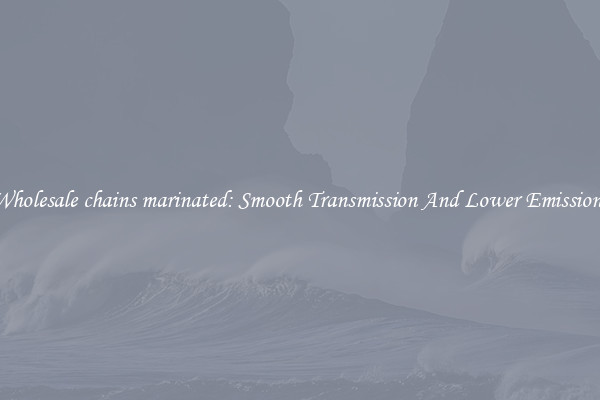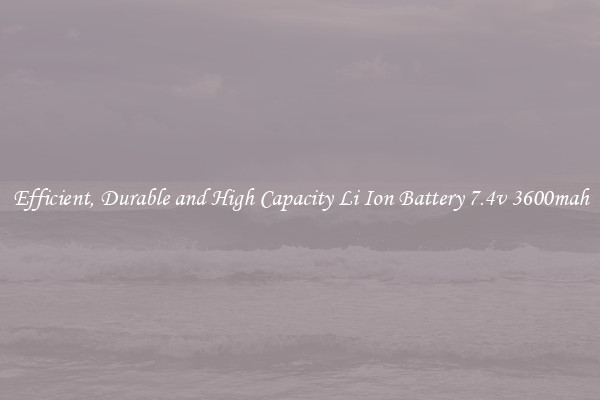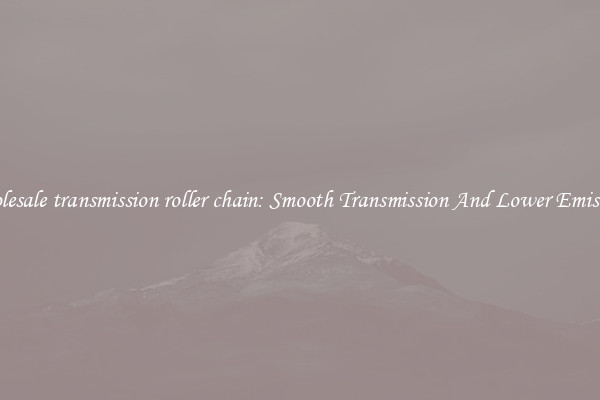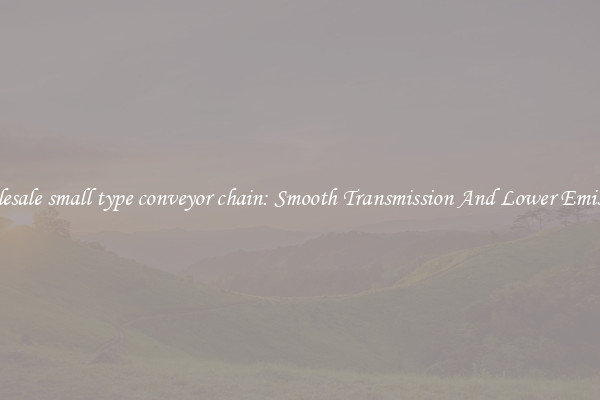Wholesale chains marinated: Smooth Transmission And Lower Emissions
Wholesale chains are an essential part of the supply chain industry, providing goods at bulk quantities to retailers and businesses. In recent years, there has been a growing trend towards sustainability and reducing carbon emissions. As a result, many wholesale chains have adopted innovative methods to ensure smooth transmission and lower emissions.

One of the primary areas where wholesale chains have made significant improvements is in transportation. Traditionally, diesel-powered trucks have been used to transport goods from warehouses to retail locations. However, these trucks are known for their high emissions and contribute to air pollution. To combat this, many wholesale chains have started transitioning towards electric or hybrid vehicles.
Electric vehicles (EVs) have zero tailpipe emissions, making them an excellent choice for reducing carbon emissions. By investing in electric trucks, wholesale chains can significantly decrease their carbon footprint and contribute to a greener environment. Furthermore, electric vehicles also provide a smoother and quieter transmission, resulting in a more pleasant experience for drivers and nearby residents.
Hybrid vehicles, on the other hand, combine a conventional combustion engine with an electric motor. These vehicles offer an efficient and eco-friendly transportation solution. They can switch between electric and gasoline-powered modes, depending on the driving conditions, resulting in lower emissions and enhanced fuel economy.
Another innovative approach to reduce emissions that wholesale chains have adopted is the use of alternative fuels. Many companies are turning to biodiesel or natural gas as a substitute for traditional diesel fuel. Biodiesel is a cleaner-burning alternative made from renewable resources such as vegetable oils or animal fats. It produces significantly lower levels of pollutants compared to diesel fuel, contributing to better air quality. Natural gas is another viable option, as it emits fewer greenhouse gases and other pollutants.
Additionally, wholesale chains are investing in advanced logistics management systems to optimize their transportation routes. By leveraging technology, they can identify the most efficient routes, reduce unnecessary miles traveled, and minimize fuel consumption. Cutting down on fuel usage leads to lower emissions and a more sustainable supply chain.
In conclusion, wholesale chains are taking significant steps towards achieving a smoother transmission and lower emissions. The transition to electric or hybrid vehicles, along with the use of alternative fuels and advanced logistics management systems, is helping wholesale chains reduce their carbon footprint. By adopting these innovative methods, wholesale chains not only contribute to a greener environment but also set an example for other industries to follow. Prioritizing sustainability benefits everyone and ensures a brighter future for generations to come.

View details

View details

View details

View details







